 loading
loading
First Days at YaleInterviewsFirst-years talk about their first impressions 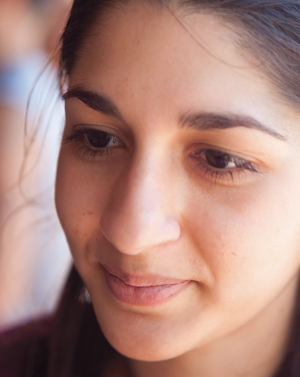 Mark OstowView full image
Aarti Daryanani Why did you choose Yale, coming all the way from Peru, and with so many possibilities? Because of the professors and also because of the students. Whenever I spoke to anybody who had gone to Yale, they always said that they learned the most not in class but from other students, because they were so diverse and had so many life experiences. What did you do during OIS [the pre-orientation program for international students]? We had a scavenger hunt, a talent show, and we did administrative work, like getting a phone, setting up a bank account. Did you bring anything from home? I did. I brought a llama. A stuffed animal. How many courses are you shopping? I’m trying to narrow it down to nine, but right now I’ve got 11 on my schedule.
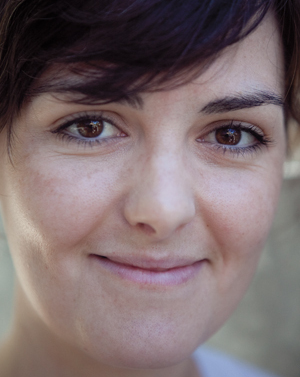 Mark OstowView full imageKate Noll Where did you live, and what were you working at before returning to school? I lived in Amsterdam for two years and then I moved to New York. I’ve been an art director/stylist in film and television, and a little bit of opera. I was the right-hand man—girl—for an opera director and artist. What do you like about opera? Oh my God, what don’t I like? Making a world based on music. A story led by music and emotion allows for a pretty creative and fantastic world that you don’t see as much on film and TV. It sounds like you were already working in your field. Why did you return to school? I wanted to gain some clout personally, artistically, rather than being an assistant forever.
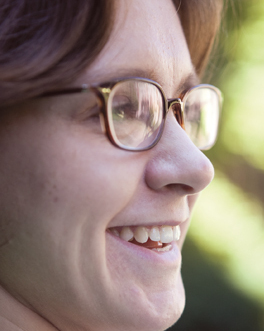 Mark OstowView full imageKatharina Gnath Fox International Fellow, MacMillan Center What is your field? International political economy. It’s to understand how international markets are governed—financial markets. The politics behind it. Why did you choose to spend a year at Yale? There’s a big critical mass of people doing political science, so I’m hoping to be able to participate in colloquia and research seminars. I’m interested in European integration, and I was interested to see how it’s being perceived on the other side of the Atlantic. Where did you go for your undergrad and your master’s? Oxford as an undergraduate and the London School of Economics for my master’s. And you’ll be a professor after this? I could imagine becoming something else than a professor after completing my PhD. What will you do? I don’t know. I’m hoping to find that out as well here. If you come to grad school in the US, this is what you plan to do. Whereas if you do graduate school in Germany, you are much more open to doing something else.
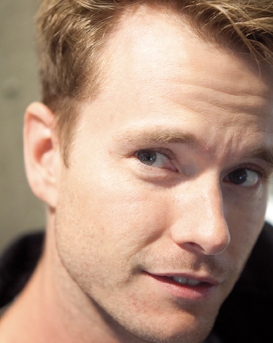 Mark OstowView full imageLeeland McPhail Are you coming straight from college, or have you been working? I worked for a very small architecture practice, named bldgs, in Atlanta. What did you study as an undergrad? I studied architecture. But I was actually 26 before I went back to undergraduate. What did you do before that? I searched. What’s the big issue that your generation is going to face, vis-à-vis architecture? I think how socialization and social media and communications have helped broaden our relationships and how that might impact the deepening of our relationships. But also how those mediascapes—their nature of being digital and virtual—impact our physical environment. How does something that is intrinsically not physical or tactile impact or change our understanding or our making of architecture? And how our notion of public space is changing—how it might start to loosen the definition of public space. How do you find life in the Northeast? Being from the South, you hear things about people’s attitudes, and people not having time—but I have experienced quite the opposite. And I had to come north to get a hurricane and an earthquake at the same time.
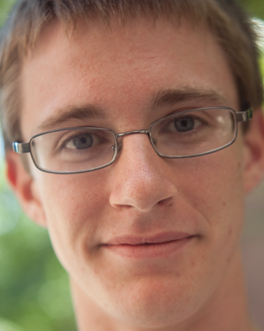 Mark OstowView full imageWill McPherson What do you plan to study? Political science. I like the comparisons and contrasts of political ideologies. Political science relates to so many disciplines: the humanities, history, anthropology, economics. Everything is interrelated. Why did you choose to come to school in New England? I definitely wanted a big change, and it’s definitely a big change. I’ve always lived in the South, and this is a very different feel. How so? People are friendly here, but it’s not open-friendly. When you walk down the street and say “Hi,” people may not answer. But if you go into a store, they’re very helpful, very friendly. Where have you had the best conversations so far? Cultural Connections [a freshman pre-orientation program]. That was very intimate, very deep, and very rewarding. It was really good to get to see the diversity and immerse yourself in it and have a very different vantage point from everyone who was there. What advice did your parents give you? Don’t drink, don’t hook up. Be safe, take advantage of the resources I’ve been given. Definitely have fun. What do you miss from home? Sweet tea. I worked at a place that served sweet tea, so I had it like an IV.
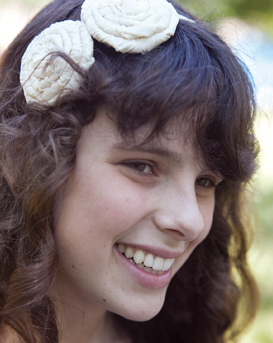 Mark OstowView full imageAndrea Grace Steig Did you take part in a pre-orientation program? Yes, I was in Harvest. I was in a group of eight freshmen and two leaders, and we went to an organic vegetable farm. What did you do on the farm? Well, we harvested tomatoes, cut tomatoes to create sauce from them, harvested and washed beets, weeded, and in the evenings we would usually go swimming in the little river by the farm, and it was just beautiful. What was the effect of that, socially? I met other freshmen that I really came to like. It was a really diverse group, and we’ve met up several times now that we’re back on campus. And being able to work on an organic farm before just the wildness and rigors of campus was a breath of fresh air. What do you mean by wildness? I’m constantly either running around or planning my next move, and I haven’t had a chance for the sort of sitting and quiet conversations that I had on Harvest. What made you come east for college? I wanted to go somewhere very different from where I came from. And New England intrigued me because it had this sort of spirit that I was seeking, at least for college—an intensity and a drive that I haven’t found on the West Coast. What are you interested in academically? A lot of things. Today I’m thinking of studying physics and philosophy. And yesterday? Literature. [Laughs.]
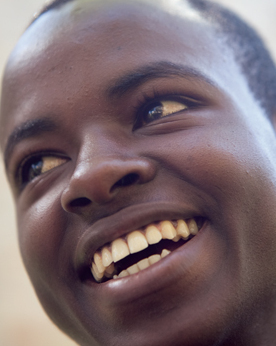 Mark OstowView full imageKenneth Kiambati What are your academic interests? I’m probably pre-med. Medicine to me is a way I feel I can really impact my society back in Kenya, because health is one of the areas we’re really struggling with. Our health-care system is not well developed, and one of the reasons is insufficient qualified medical practitioners. How did you end up at Yale? I went to one of the government schools in Kenya. It’s the first government school to be established, in 1926, for Africans in the colonial period. It’s in Kikuyu, in central Kenya. It’s usually ranked one of the best, and you’re selected into the high school [based on an examination]. Where are your suitemates from? One of them was actually with me at OIS [the pre-orientation program for international students]. He’s from Romania. The other suitemate is from Missouri. My roommate is from Tennessee. I knew Tennessee, because I like country music. How do you find the food here? The food is very different, actually, but today I was happy to get some rice. I’m used to it, so I really jumped at that. It’s a foreign cuisine, but I’m happy to try it out. Even pizza is not that common in Kenya. Has anything surprised you? It’s beyond my expectations. I knew Yale was good, but I didn’t know it was this good. Everyone is so accommodating. I felt I haven’t been this happy in my life before. I’m so far away from home, but I feel so at home. I was afraid I would be freaked out, but I’m so at home.
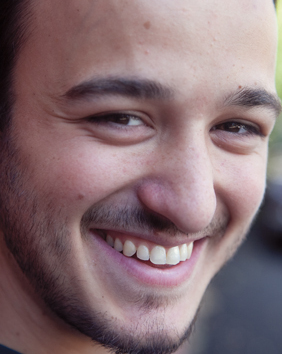 Mark OstowView full imageVictor Caccese How did you become a percussionist? I first got into it late in high school. I was a pianist before I played percussion. I really enjoyed marimba and xylophone and vibraphone, all the things that looked like the piano. I started playing those instruments in wind ensemble and marching band in high school, and eventually I started picking up drums. I played drums in the drum line, I played drums in the jazz band. It got me involved in other forms of music. Were your parents worried when you decided to become a professional musician? They kind of let me do my own thing, but at the same time supported me. My father’s actually a doctor, but he was a piano major in college. He really pushes me to do what I want to do. Why did you choose Yale? I wanted to take advantage of all the resources at my disposal. I went to school at the Peabody Institute in Baltimore, the music conservatory that is part of Johns Hopkins, and the teacher I had there was Robert van Sice, who also teaches at Yale and at the Curtis Institute of Music. I knew other students who then auditioned for the graduate program here, because they knew the percussion program was really strong and they’d enjoyed studying with Bob. A big thing for me coming to Yale was it’s so close to New York City. [Gestures toward two music students putting a large instrument case in a van.] These guys are loading up to play a concert in New York on Wednesday.
The comment period has expired.
|
|